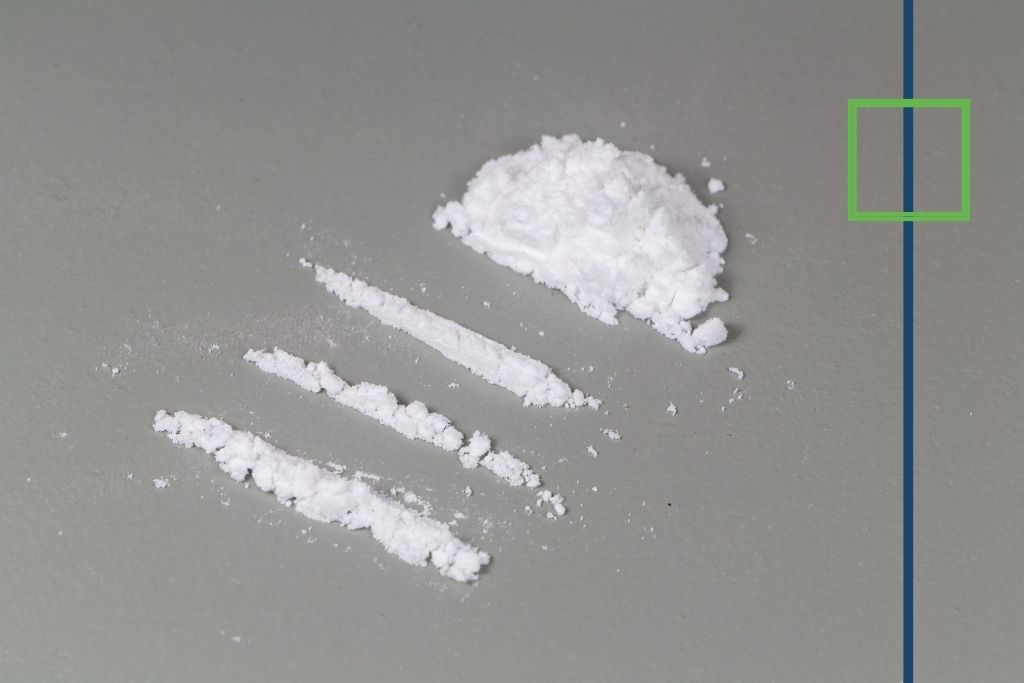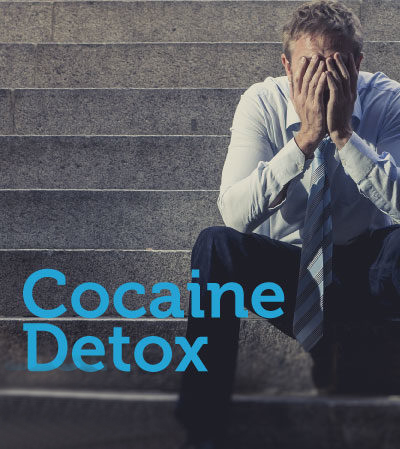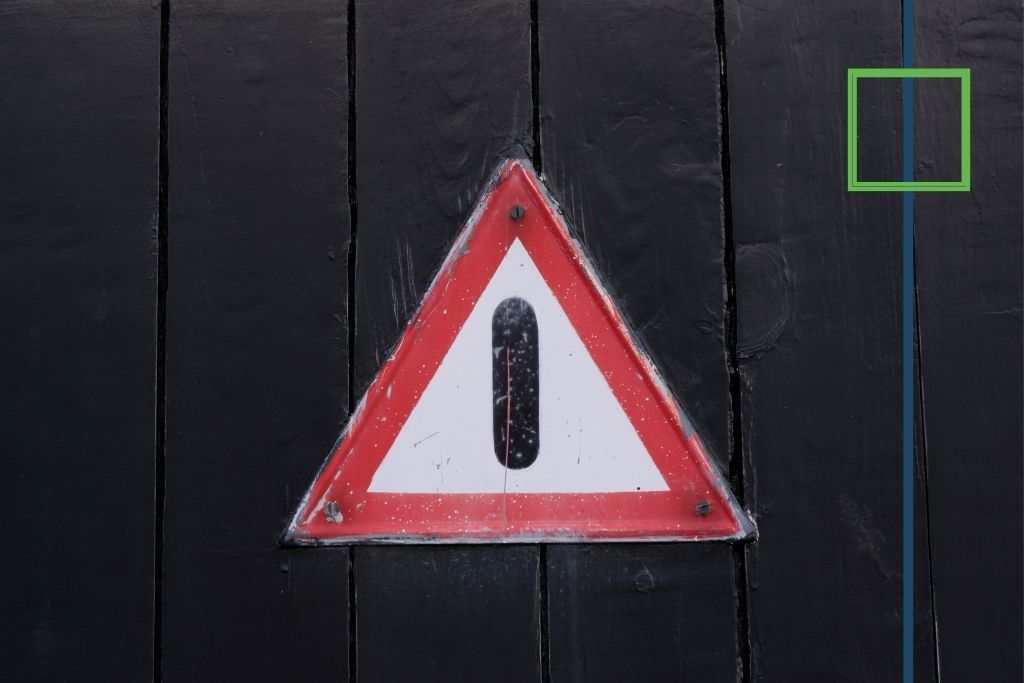Can someone suffer from a cocaine overdose?
Yes, a person can suffer from a cocaine overdose. An overdose happens when someone abuses enough of a drug to produce serious adverse effects, life-threatening symptoms, or death. Cocaine overdose can be intentional or unintentional. According to the National Institute on Drug Abuse (NIDA) [1], Drug overdose deaths involving cocaine rose from 3,822 in 1999 to 15,883 in 2019.
According to the National Institute on Drug Abuse (NIDA) [2], increasing numbers of overdose deaths among cocaine users might be related to tampered cocaine. Street dealers often combine cocaine with things like talcum powder, cornstarch, or flour to increase profits. They may also mix cocaine with other substances such as the stimulant amphetamine, or synthetic opioids, including fentanyl. Mixing synthetic opioids to cocaine is especially risky when people using cocaine don’t realize it contains this dangerous additive.
Death from cocaine overdose can happen on the first use of the drug or unexpectedly thereafter. Many people who use this illicit drug also drink alcohol at the same time, which is particularly dangerous and can lead to a cocaine overdose. Others mix cocaine with heroin, commonly known as speedballing, another dangerous—and deadly—combination.
Some of the most prevalent and critical health consequences of cocaine overdose are irregular heart attacks, heart rhythm, seizures, and strokes. Other symptoms of cocaine overdose include hallucinations, difficulty breathing, high blood pressure, high body temperature, and extreme anxiety or agitation.

What Causes a Cocaine Overdose?
The causes of cocaine overdose vary, but the chief among them is compulsive use. Compulsive use means an overwhelming urge or desire to use more of the drug than is intended and to use it for longer periods than intended.
These compulsions lead to toxicity (poisoning) during binges, a practice that is prevalent among cocaine users.
Binge use can extend over a period of days, compromising psychological and physical stability. Severe brain modifications occur along with interrupted basic needs such as food, sleep, and hydration.
Some variations in cocaine overdose potential occur according to the method of use, but severe and fatal overdoses can happen with all methods, including:
- Smoking
- Injecting
- Intranasal use
An unexpected and life-threatening overdose reaction can happen just after use or within minutes of use. In general, the quicker this drug is absorbed by the body, the greater the chance of cocaine overdose.
Combining cocaine with other drugs is common and increases the chance of harmful complications, including cocaine overdose. Some with co-occurring, partially treated, or untreated mental health conditions attempt to self-medicate with heavy cocaine use.
Others struggling from PTSD and chronic depression report symptom relief when using. Also, in some instances, schizophrenia patients report relief from symptoms of the mental illness as well as alleviation from some side effects of anti-psychotic medicine. All such users are at high risk for a cocaine overdose.
As with other substances of addiction, the body develops a tolerance to cocaine use and creates an increasing need for more use (amount and frequency) to achieve the desired intoxication effects. Over time, physical tolerance for cocaine continues to progress with increased use.

Get Your Life Back
Find Hope & Recovery. Get Safe Comfortable Detox, Addiction Rehab & Mental Health Dual Diagnosis High-Quality Care at the We Level Up Treatment Centers Network.
Hotline (877) 378-4154How Much Cocaine Can Cause an Overdose?
As a party drug, cocaine overdoses usually happen one of two ways:
- Either the user ingests too much of the drug
- The user uses more and more to maintain their high
Therein lies cocaine’s true danger. The high itself almost never lasts for more than an hour, so cocaine users tended to use it incrementally. When cocaine users do not realize the amount of drugs they’ve put into their bodies already, this is a recipe for disaster.
Just how much cocaine presents the risk of an overdose? Well, the answer varies based on individual or unique circumstances. According to the University of Arizona, a cocaine overdose may not be dose-specific, as there have been overdoses from single doses of a few hundred milligrams while others have used several grams of cocaine and not had a fatal reaction.
Method of ingestion — nasally, orally, or intravenously — plays a factor, as does the tolerance of the individual themselves. Cocaine should never be injected as this method requires the least amount to produce a lethal reaction, with as small as 20 mg. Notwithstanding the threats, most individual doses range between 10 and 150 mg each.
Mixing Cocaine with Other Drugs
The purity of cocaine can play a role in cocaine overdose, as some street drugs are mixed with other substances to increase profits. Mixing cocaine with other drugs, particularly alcohol, heroin, or Xanax, only intensifies the likelihood of a lethal overdose. Drug mixing should be avoided at all costs.
Cocaine and Alcohol
According to the National Center for Biotechnology Information (NCBI) [3], cocaine is particularly dangerous to use with alcohol, as the combination produces a powerful toxin in the body called cocaethylene. Cocaethylene is eliminated even slower from the body than cocaine and can intensify the cardiotoxic effects, for instance, by further increasing the heart rate and enhancing the concentration of cocaine in the bloodstream. Cocaine addiction is difficult to recover from, but it can be treated.
Cocaine and Xanax
Both cocaine and Xanax are addictive drugs, and chronic abuse of either drug can lead to physical drug dependence and the psychological inability to control drug use. With physical dependence on cocaine and Xanax come withdrawal symptoms when the drug stops being active in the body. People may resort to other drugs to try and manage these uncomfortable withdrawal side effects. Xanax may seem to ease cocaine withdrawal, for instance.
One of the most important risks of mixing Cocaine and Xanax is the risk of overdose. Anytime a person abuses cocaine and takes Xanax recreationally, there is a great risk that it could lead to an overdose. The more of a drug that you use, the higher that risk. When someone takes two separate drugs simultaneously, they’re increasing their effects. They’re also asking the body to process two toxins at the same time. This can overload the system, and it can cause an overdose.

Signs and Symptoms of a Cocaine Overdose
A cocaine overdose can result in permanent physical damage to the:
- Heart
- Brain
- Circulatory system
- Muscular system
- Kidneys
Along with physiological signs of overdose, dangerous psychological and behavioral symptoms also happen.
In the event of behavioral and psychological symptoms, the user’s safety may be compromised along with others in the immediate environment.
Physical Signs of Cocaine Overdose
Physical indications of a cocaine overdose include:
- Tremors
- Agitation
- Headache
- Feeling faint
- Chest pains
- Nausea
- Vomiting
- Seizures
- Abdominal pain
- Altered breathing
- Increased body temperature
- Elevated pulse rate
- Profound confusion
- Loss of consciousness
- Death (in extreme cases)
Get Help. Get Better. Get Your Life Back.
Searching for Accredited Drug & Alcohol Rehab Centers Near You? Or Mental Health Support?
Even if you have failed previously, relapsed, or are in a difficult crisis, we stand ready to support you. Our trusted behavioral health specialists will not give up on you. Call us when you feel ready or want someone to speak to about therapy alternatives to change your life. Even if we cannot assist you, we will lead you wherever you can get support. There is no obligation. Call our hotline today.
FREE Addiction Hotline – Call 24/7Psychological and Behavioral Signs of Cocaine Overdose
Psychological and behavioral signs of cocaine overdose include:
- Panic
- Anxiety
- Altered perception of reality (hallucinations and delusions)
- Delirium
- Paranoia
- Threats made to others
- Compromised ability to keep self and others safe
What Happens During Cocaine Overdose?
As a psychoactive drug and a stimulant, cocaine speeds up the body’s central nervous system (brain and spinal column). Cocaine toxicity can cause these common side effects of use to become more intense to the point that they become dangerous and life-threatening [4].
Stage 1
Stage one of acute cocaine toxicity commonly includes symptoms such as:
- Nausea
- Headaches
- Twitching
- Rapid breathing
- Spinning sensation
- Pseudohallucinations
- Paranoia and confusion
- Increased blood pressure and heart rate
Along with the beginning of problematic physical effects from cocaine, the first symptoms of a cocaine overdose can include unusual changes in mood or behavior. For example, a person who overdoses on cocaine may become paranoid, delirious, confused, and even violent. As a result, the individual may become a threat to themselves as well as others.
Stage 2
During the second stage of a cocaine overdose, symptoms can intensify to include:
- Hyperthermia
- Loss of bladder control
- Brain damage
- Seizures
- Irregular heartbeat
- Irregular or temporary cessation of breathing
Some of the short-term physical effects of cocaine include increased body pressure, blood temperature, and heart rate, but these same effects can lead to respiratory and cardiac problems and even seizures with an overdose.
Stage 3
Finally, during the third stage of cocaine toxicity, individuals may experience:
- Loss of vital functions
- Respiratory failure
- Cardiac arrest
- Coma
The most severe cocaine overdose symptom effects include organ failure, seizures, and unresponsiveness. At this point, the individual’s life is at risk, and they need urgent medical attention as the body is beginning to shut down. However, if they receive the proper medical attention and survive, they may still have lasting effects.
When treating a cocaine overdose, time is of the essence. The immediate effects of cocaine can be felt after a few minutes, and the three stages of cocaine toxicity can intensify instantly, so it is crucial to act fast. In addition, if there are other substances in a person’s system, it is crucial to get help at the first sign of a cocaine overdose.
First-class Facilities & Amenities
World-class High-Quality Addiction & Mental Health Rehabilitation Treatment
Rehab Centers TourRenowned Addiction Centers. Serene Private Facilities. Inpatient rehab programs vary.
Addiction Helpline (877) 378-4154Proven recovery success experience, backed by a Team w/ History of:
15+
Years of Unified Experience
100s
5-Star Reviews Across Our Centers
10K
Recovery Success Stories Across Our Network
- Low Patient to Therapist Ratio
- Onsite Medical Detox Center
- Comprehensive Dual-Diagnosis Treatment
- Complimentary Family & Alumni Programs
- Coaching, Recovery & Personal Development Events
How is Cocaine Overdose Treated?
Unfortunately, there is no specific medication that can reverse a cocaine overdose. The medical intervention relies on treating the principal symptoms of the overdose. In a hospital setting, treatment starts by giving the person a sedative to lower their blood pressure and to prevent heart attack. Medications such as benzodiazepines are used to accomplish this. Giving these drugs also lessens the chance of a stroke.
Following recovery, it is important that one avoids overdosing again in the long term. The tremendous stress an overdose puts on vital organs leaves them susceptible to future damage and trauma. Given cocaine’s very addictive nature, this is easier said than done. Sometimes, the best support is preventative care. Seeking out the proper treatment efforts can put you or your family members on a path free of the fear of overdoses altogether.
What to do if Someone Experience Cocaine Overdose
If a loved one is showing signs of a cocaine overdose, it is crucial to act fast. Being able to recognize cocaine overdose signs and symptoms and knowing how to respond when a loved one overdoses on cocaine could make all the difference.
Call 911
- Asking professional medical care is the most practical and effective way to handle a cocaine overdose and prevent deadly consequences.
Stay on the Phone
- It is natural when abusing an illicit drug like cocaine to be anxious about seeking help, but the individual you are with needs you. Stay on the phone with 911 until first responders arrive and do as the 911 operator instructs.
Turn Them on Their Side
- If the victim is throwing up or having a seizure, turn them on their side. This procedure can help keep their airways clear and keep them from choking on their own vomit.
Remove Immediate Dangers
- If the victim is having a seizure, try to remove any objects that are sharp or could fall on them from their immediate area. Do not put anything in their mouth.
Stay Calm
- It is normal to feel panicked when a loved one is experiencing a cocaine overdose, but do your best to stay calm. Do as the 911 operator tells you. If the victim has temporarily stopped seizing, do not take this as a sign that danger has passed. Continue to seek emergency medical attention right away as seizures may happen.
World-class, Accredited, 5-Star Reviewed, Effective Addiction & Mental Health Programs. Complete Behavioral Health Inpatient Rehab, Detox plus Co-occuring Disorders Therapy.
CALL (877) 378-4154End the Addiction Pain. End the Emotional Rollercoaster. Get Your Life Back. Start Drug, Alcohol & Dual Diagnosis Mental Health Treatment Now. Get Free No-obligation Guidance by Substance Abuse Specialists Who Understand Addiction & Mental Health Recovery & Know How to Help.
Treatment For Cocaine Addiction
Millions of people in the United States use cocaine each year. At least one million live with a cocaine use disorder.
Treatment for cocaine addiction generally begins with cocaine detox, followed by an inpatient rehab program.
Treatment for cocaine addiction may include:
- Medically Assisted Detox
- Behavioral Therapy
- Support groups
- Medication-Assisted Treatment (MAT)
- Aftercare support
Find the Right Treatment Plan at We Level Up NJ
Since cocaine metabolizes quickly, it leaves the body in approximately 8 hours, based on the drug’s half-life. Some people detox from cocaine at home because it does not take long. However, it is not advisable to detox by yourself at home because of the dangerous effects of cocaine withdrawal. Most importantly, the risk of cocaine overdose is high regardless of a person’s experience with the drug, and it is necessary to get people into a drug rehab center at the first sign of drug abuse.

Please, do not try to detox on your own. The cocaine detox process can be painful and difficult without medical assistance. However, getting through the detox process is crucial for continued treatment. We Level Up NJ provides proper care with round-the-clock medical staff to assist your recovery through our Cocaine Detox Program. So, reclaim your life, call us to speak with one of our treatment specialists. Our counselors know what you are going through and will answer any of your questions.
Experience Transformative Recovery at the We Level Up Treatment Center.
See our authentic success stories. Get inspired. Get the help you deserve.



Start a New Life
Begin with a free call to an addiction & behavioral health treatment advisor. Learn more about our dual-diagnosis programs. The We Level Up treatment center network delivers various recovery programs at each treatment facility. Call to learn more.
- Personalized Care
- Caring Accountable Staff
- World-class Amenities
- Licensed & Accredited
- Renowned w/ 5-Star Reviews
We’ll Call You
Sources:
[1] NIDA – https://www.drugabuse.gov/drug-topics/trends-statistics/overdose-death-rates
[2] NIDA – https://www.drugabuse.gov/publications/drugfacts/cocaine
[3] NCBI – https://pubmed.ncbi.nlm.nih.gov/7616402/
[4] NCBI – https://www.ncbi.nlm.nih.gov/pmc/articles/PMC2703432/
[5] We Level Up – Cocaine Addiction